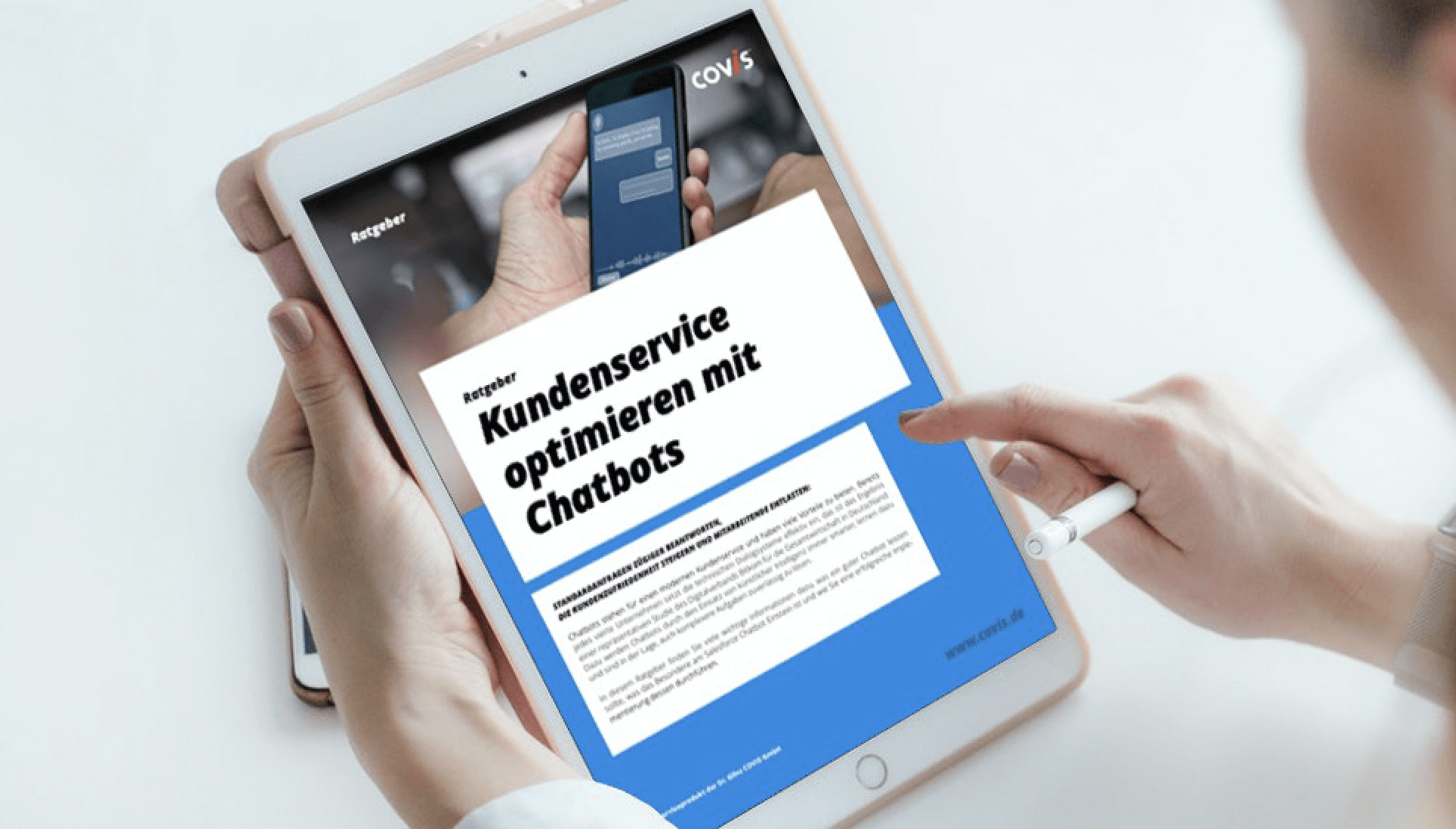Artificial intelligence will be a key technology in the 21st century and will permanently change customer service through the increasing use of mobile devices.
Rapid development is noticeable everywhere
Today, machines can already communicate with humans on a level that seemed unimaginable just a few years ago: Amazon gives very precise product recommendations, Facebook can automatically mark people in photos and Google proactively guides drivers around traffic jams. There are also approaches to using artificial intelligence in Recruiting. The development expected by experts will be many times faster in the coming years.
Large companies increasingly rely on AI
The importance of artificial intelligence is slowly reaching the management levels of companies. According to a study by Gartner, 55% of all large companies plan to invest in AI by 2020. Forrester expects investments in AI technologies to increase by 300 % this year. IDC expects the AI market to reach a volume of 47 billion US dollars in 2020.
However, few decision-makers still understand what artificial intelligence is exactly and how it can change customer service, for example. What opportunities and challenges does AI bring for optimisation in customer service?
Artificial intelligence in customer service: Win-win situation
The most important consumer apps are already using AI components. One area that will soon follow suit is customer service. This part of a company is often particularly process- and technology-oriented. Artificial intelligence offers the opportunity to make the customer experience more personalised, faster and smarter. A positive customer experience is one of the most important success factors of any business. AI should therefore be considered a top priority by every decision-maker in the customer service environment.
Forrester predicts that artificially intelligent customer service will soon be ubiquitous - be it via voice commands, smart devices or wearables for service technicians. Currently, there are several ways to use AI in customer service. These include chatbots, process automation or virtual customer agents, although there is still no fixed term for the latter.
What does AI do for customer service?
More generally, AI supports process automation and thus ensures, for example, that enquiries are automatically categorised and, if necessary, forwarded to the right places. Artificial intelligence also recognises the mood of an enquiry and interprets particularly upset customers directly.
Furthermore, the technology adapts the response to the respective channel and thus creates genuine multi-channel customer service. An enquiry via Twitter, for example, is automatically reduced to 140 characters. The employee often only has to slightly adapt the answer. The AI technology is constantly learning and improving.
Chatbots and virtual customer agents noticeably relieve the burden on customer service
Chatbots are text-based dialogue systems that simulate conversations with a human and can perform certain tasks independently. A chatbot first learns from chat logs and then manages without further human input. Chatbots are already being used in many companies today and it can be assumed that this rapidly developing technology will become increasingly widespread.
Virtual customer agents support human service staff by taking care of "first-level" queries, such as FAQs. Artificial intelligence can also interpret a query at the beginning of a conversation and suggest answers to the service agent. In this way, they already reduce personnel costs and thus also the necessary training sessions for employees. On top of that, chatbots answer customer queries immediately, which leads to an improved customer experience.
Artificial intelligence: challenges must be solved
Although the development of artificial intelligence has made a great leap forward in the recent past, the trending technology is still at the beginning. Because: A sentence has different semantic levels that are difficult to interpret. For example, it is very complex for computers to understand linguistic peculiarities such as irony. Usually, different text fragments only make sense in context. If the AI technology does not understand this, the answer turns out strange.
Ideally, the AI of the future will be able to read out thousands of data records, recognise grammatical and spelling errors and understand dialects. In reality, however, the customer service departments have not covered every case in the chat logs on the one hand. And on the other hand, even if there were enough chat logs, the logs are not paired with the intention of the request, so the technology cannot match them.
Furthermore, there is no standard solution for artificial intelligence. Every industry has different terminology and problems. Queries to a credit card company are significantly different from those to a mobile phone provider. Companies therefore need individual solutions, for which there is usually not enough internal know-how available.
Data is the oil of the 21st century
In general, it is important to understand that current AI needs to be trained with data. For some general purposes, such as image recognition or interpreting moods in texts, it is sufficient to train AIs with non-specific data.
For a company-specific AI, however, characteristic data such as real chat logs or query texts are necessary. And even if the use of an AI is not currently planned, potentially interesting data should already be stored today. Of course, data protection must be taken into account here: Data records may need to be anonymised in order to preserve the valuable content for future AI training purposes.
Conclusion: Artificial intelligence enriches customer service
Artificial intelligence is one of the absolute key technologies of our time. Especially for customer service departments, the technology holds great potential to improve the customer experience and save costs. In practice, there are still some challenges that need to be solved in the next few years.


